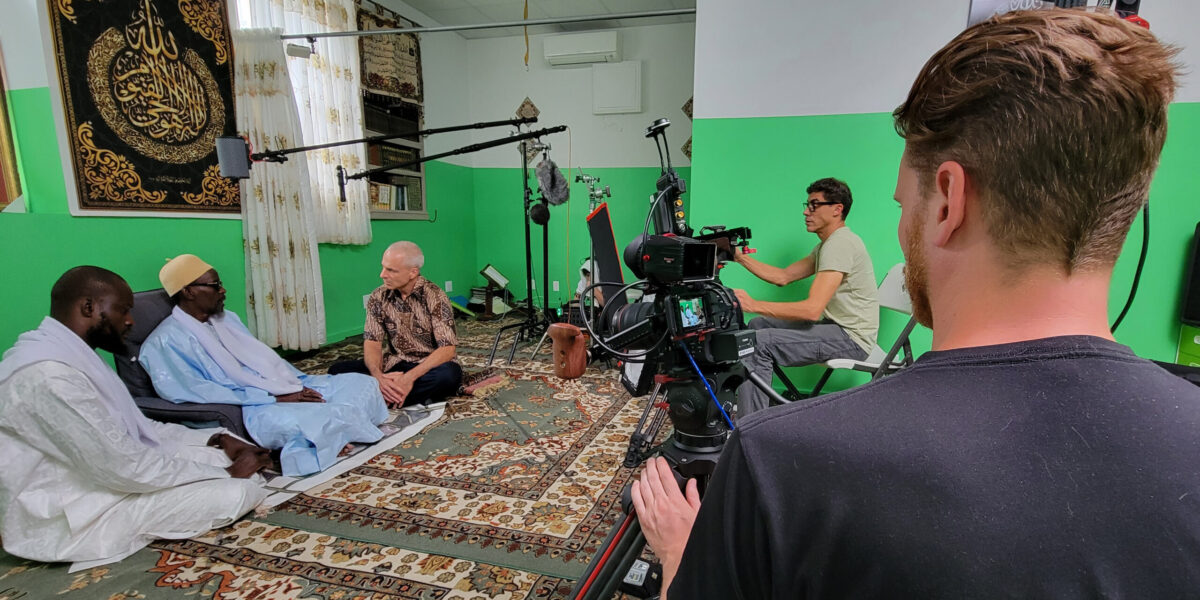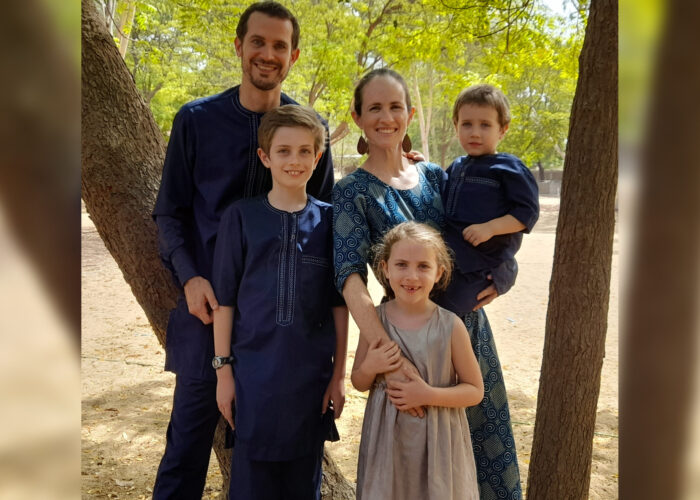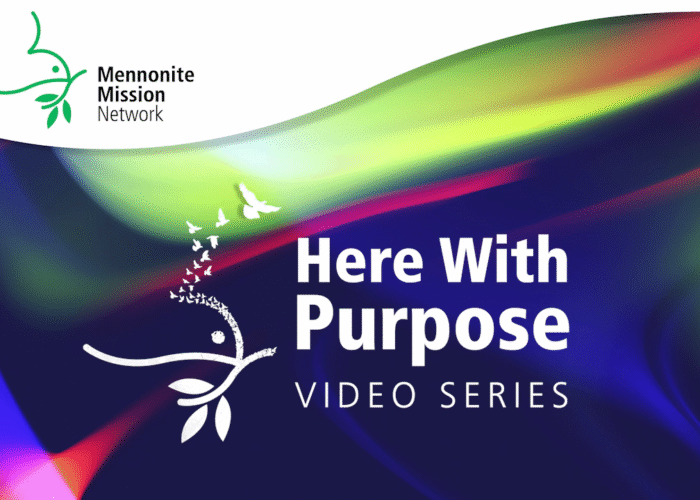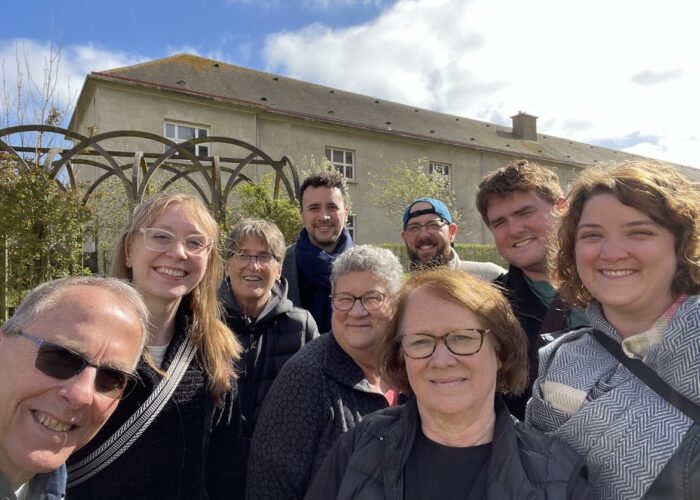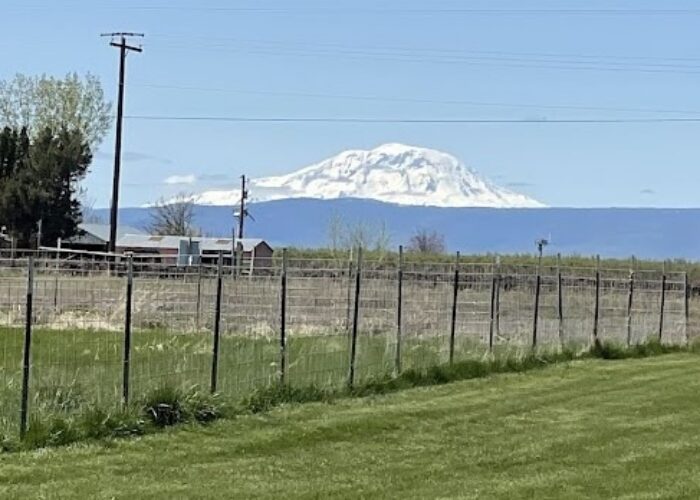Jonathan Bornman first encountered Muridiyya Muslims in Senegal, where he and his wife, Carol, served for 10 years — sent by a partnership between Friends of the Wolof (FOW), African Inter-Mennonite Mission and Mennonite Board of Missions (a predecessor agency of Mennonite Mission Network). Even though some of the Muridiyya joined the Bible study and nascent church fellowship that Bornman was involved in, he was not aware of this Sufi order’s commitment to nonviolence.
“The Baay Faal [a subgroup of the Muridiyya] wear vibrant patchwork clothing. They’re aggressively proselytizing and begging and dancing and drumming in the streets. They had a negative reputation in the missionary community, which failed to understand them or their place in the larger Muridiyya community.”
– Jonathan Bornman
Two decades later, the Muridiyya of Harlem, in New York, New York are one of three communities Bornman highights in “Unexpected Peace,” a new documentary he produced about peace-building communities in action. Bornman produced the documentary alongside co-producer D. Michael Hostetler, who was the first director of Nazareth Village, and cinematographer Ehab Assal. It took over four years and $350,000 to produce. (Meet the filmmakers)
Bornman used his own shift in seeing the Muridiyya community as an unreachable “other,” to recognizing the group’s pacifist values as similar to those of his own Mennonite community to develop the film’s theme: Building peace between disparate groups requires recognizing commonalities.
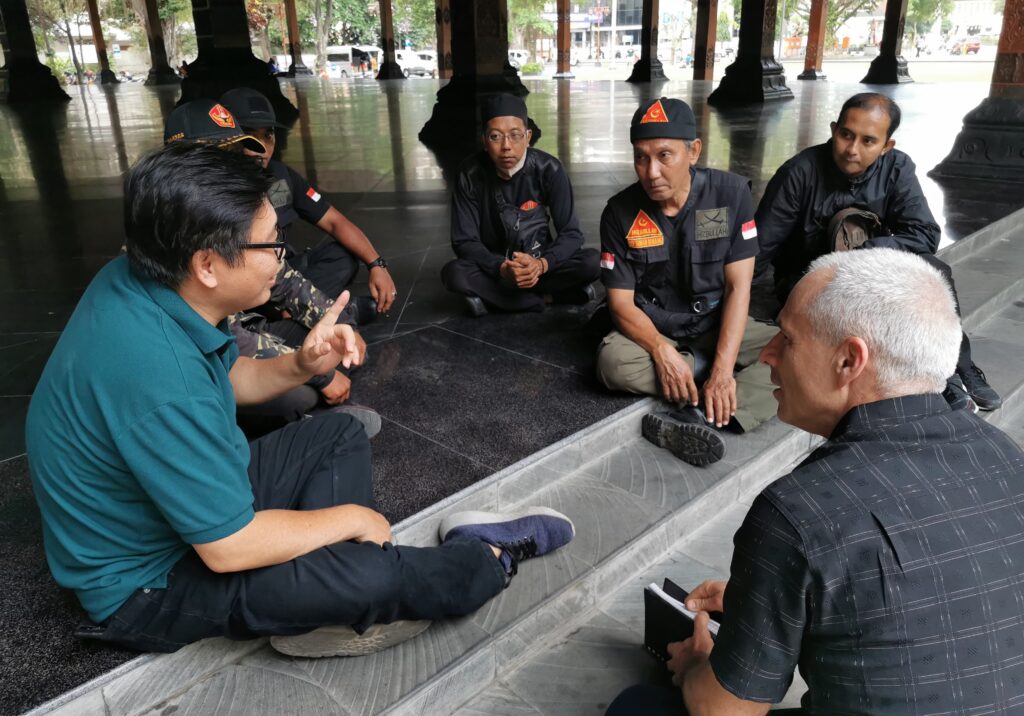
The main narrative of the documentary is set in Solo (Surakarta), Indonesia, where Muslim-Christian conflicts erupted at the turn of the millennium, resulting in thousands of deaths. In 2002, amid this turmoil, Paulus Hartono, a Christian pastor, and Yanni Rusmanto, an Islamic militia (Hezbollah) leader, met and began working toward making peace.
A tsunami struck the Indonesian city of Aceh in 2004. More than 225,000 died, and many of those who survived were homeless and grieving. Hartono and Rusmanto pooled their resources to respond to the crisis. Through this experience, their two communities — a Christian congregation and a Muslim militia — came together as peaceful neighbors, breaking the cycle of violence in their city and challenging entrenched anti-Islamic and anti-Christian prejudices.
The first two narratives, one Christian and one Muslim, set the stage for the central story of interfaith peacebuilding in Indonesia.
The first story recounts the radical forgiveness extended by the victims’ families following the 2006 Nickel Mines (Pennsylvania) Amish schoolhouse shooting. Members of the Amish community consoled the family of the man who shot five girls; some members even attended his funeral.
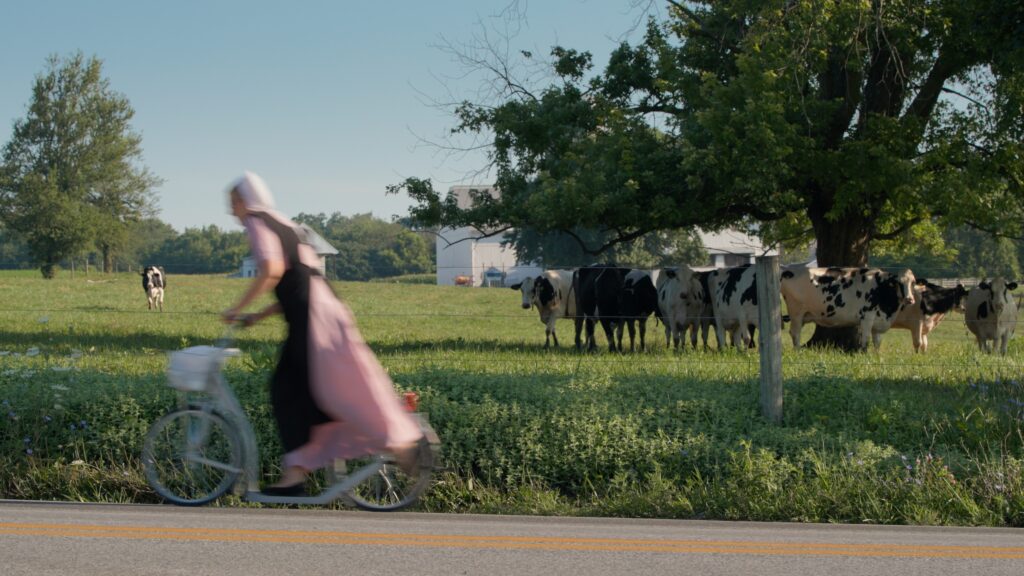
The second story highlights the Muridiyya community in Harlem, which upholds a commitment to nonviolence, despite facing violent aggression. Faced by discrimination and the murder of over 40 Muridiyya taxi drivers in the ’80s and ‘90s in New York City, the Muridiyya community, which had recently immigrated to the city, chose to stand together in peace, instead of retaliating.
“We, the producers, think this is the real point of connection for our film and the current state of the world. We show people overcoming polarized and divided communities with nonviolent peacebuilding.”
– Jonathan Bornman
The website for the film puts it starkly: “Amidst difference, scarcity, and injustice, fear divides. Anger boils. Conflict erupts.” The producers ask: “Is there another way? Do peacebuilding, forgiveness, and reconciliation even work in the real world?”
Bornman draws on years of experience in international ministries with various Mennonite agencies. He served in Brazil and Burkina Faso with Mennonite Central Committee, before discerning the call to join a team that was planting churches in Senegal in 1999.
After returning to the United States, Bornman pursued a doctorate in social anthropology and spent four years conducting an ethnographic study of the Harlem Muridiyya community.
Through his studies, Bornman was surprised by the pacifistic teachings of the group’s leader, Shaykh Ahmadu Bamba. “What I learned is that the outward persona of the group that I thought was so extreme is really just a scary outward persona,” he said. “My whole perception has changed completely.”
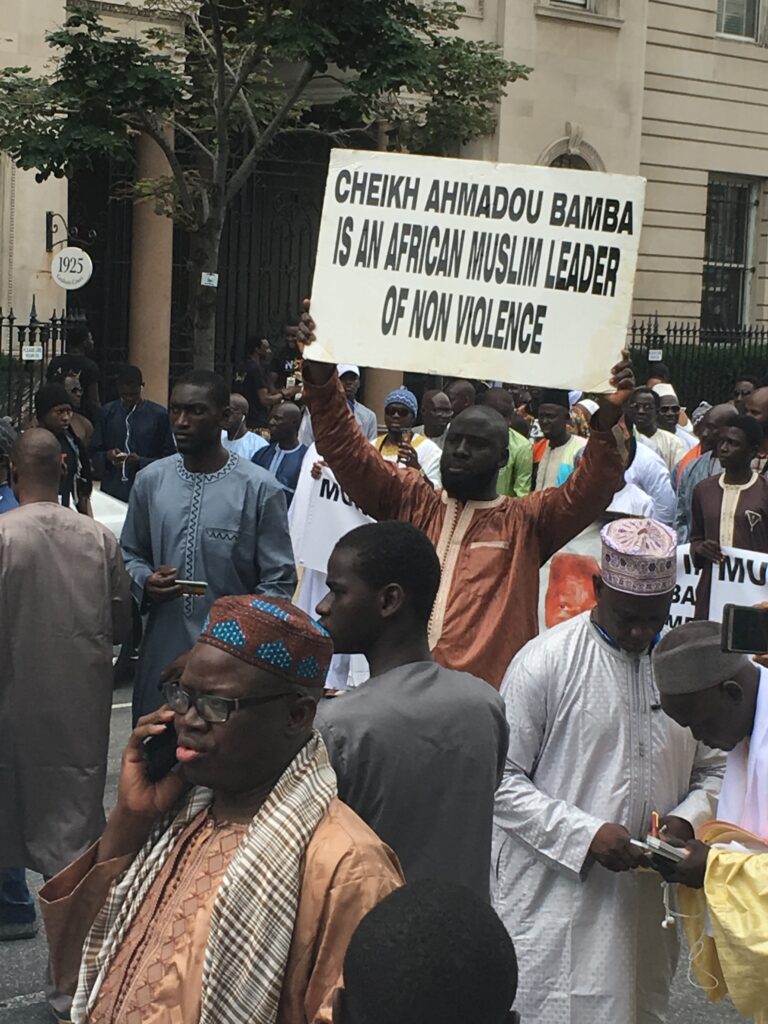
For the past 12 years, Bornman has served on the Christian-Muslim Relations Team at Eastern Mennonite Missions (EMM). He was also involved in the production of the series “The Allies for Peace,” which he created with Peter Sensenig and EMM’s Christian-Muslim Relations Team in 2020, and the film “A search for peace, a Palestinian perspective on nonviolent conflict resolution.” He started Dove Tale Productions, in 2021, to produce “Unexpected Peace.”
“We would like everybody to watch ‘Unexpected Peace,’” Bornman said. But the target audiences are Christian and Muslim groups involved in peace and reconciliation work.
Bornman said that he sees the three stories in the documentary as parables that viewers can apply to their own contexts. He hopes the film will inspire Mennonites to rekindle their commitment to pacifism.
He said he hopes that the documentary can catalyze Mennonites to start talking more seriously about what nonviolence looks like in their current contexts.
The film will be available to view on these dates:
- November 9: “Unexpected Peace” will premiere at the Red Rose International Film Festival, in Lititz, Pennsylvania. Tickets cost $5 and can be bought at the door or reserved ahead of time.
- November 10: The film will be released online on kinema.com, with options to rent the film for a group screening, an asynchronous watch party, or personal viewing.
- November 21: Goshen (Indiana) College will host a screening at the Umble Center.
There are plans to translate the film into several languages, including Arabic, French, Spanish, and Indonesian, as funding allows.
About the producer
Bornman grew up in a Mennonite family, in Indiana, working on local farms and in his father’s masonry business. When he graduated from high school, his eyes were opened to the world, through a one-year cross-cultural service and learning opportunity in Brazil, during which he discovered a love of language and culture. Bornman and his wife served in Burkina Faso from 1991-1994, developing water resources. There, Bornman learned French, as well as a smattering of local language greetings, and gained an understanding of African Traditional Religion, Islam and Christianity in Africa, by living in a diverse community.
After earning a master’s degree in intercultural studies, with a focus on Islam, Bornman served in Senegal from 1999-2009, as a Bible teacher. In 2013, Bornman joined Eastern Mennonite Missions’ newly formed Christian-Muslim Relations Team.
Bornman’s expertise includes nonviolence in Islam, Sufi Islam, missiology, immigration and Christian-Muslim encounters. He is a connector, who works to build bridges and equip people to participate in Jesus’ ministry of reconciliation, peacemaking and seeking the common good. He has a Ph.D. in social anthropology from Middlesex University, in London, England.

